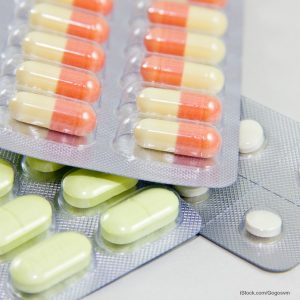The National Resources Defense Council (NRDC) is alerting the public about the problem of antibiotic resistance during the Foster Farms chicken Salmonella outbreak. Four of the seven strains of Salmonella Heidelberg in that outbreak are antibiotic resistant.
 While it is true that most of the strains in this outbreak are killed by the front line antibiotics used against that bacteria, research is finding that bacteria that are resistant to drugs are more likely to be more virulent and dangerous to humans. That may be why the hospitalization rate in this particular outbreak is almost twice the average, and why the Salmonella septicemia rate is three times the average.
While it is true that most of the strains in this outbreak are killed by the front line antibiotics used against that bacteria, research is finding that bacteria that are resistant to drugs are more likely to be more virulent and dangerous to humans. That may be why the hospitalization rate in this particular outbreak is almost twice the average, and why the Salmonella septicemia rate is three times the average.
Food Poisoning Bulletin has already told you about the PBS interview with Dr. Arjun Srinivasan of the CDC, who said that we are most likely at the end of the antibiotic era. That means antibiotics will no longer be effective against such common conditions such as step throat, a Salmonella infection, or even an infected wound. At least two million people acquire serious antibiotic resistant infections every year in this country; at least 23,000 of those patients die from their infections. Many more patients die because of conditions caused by complications of those infections.
The overuse of antibiotics in people and in agriculture is at least partly responsible for this issue. Factory animal farms use 80% of the antibiotics sold in this country. Dr. Srinivasan said, “the more antibiotics we put into people, we put into the environment, we put into livestock, the more opportunities we create for these bacteria to become resistant.” The FDA has not taken any meaningful action to reduce this number in the 35 years since it decided that the use of antibiotics in animal feed poses a threat to human health. It has only issued voluntary guidance documents for industry and antibiotic manufacturers.
It’s the sub therapeutic use of antibiotics that doctors and scientists are concerned about. Antibiotics are routinely put into animal feed to improve growth rates and to reduce the risk of infection from poor living conditions. But those small doses do not kill some bacteria; they are used by those pathogens to evolve and develop resistance against the drugs.




